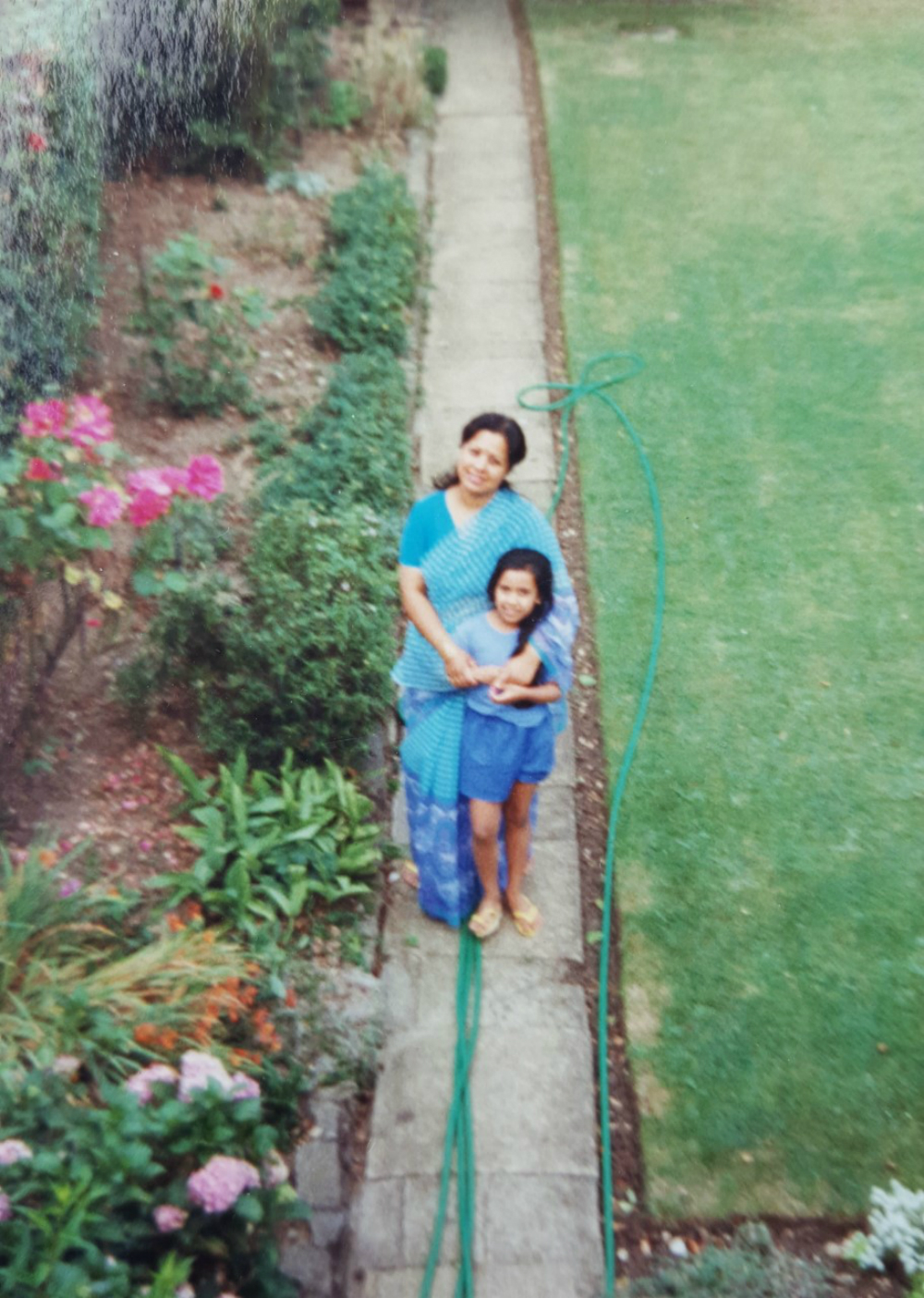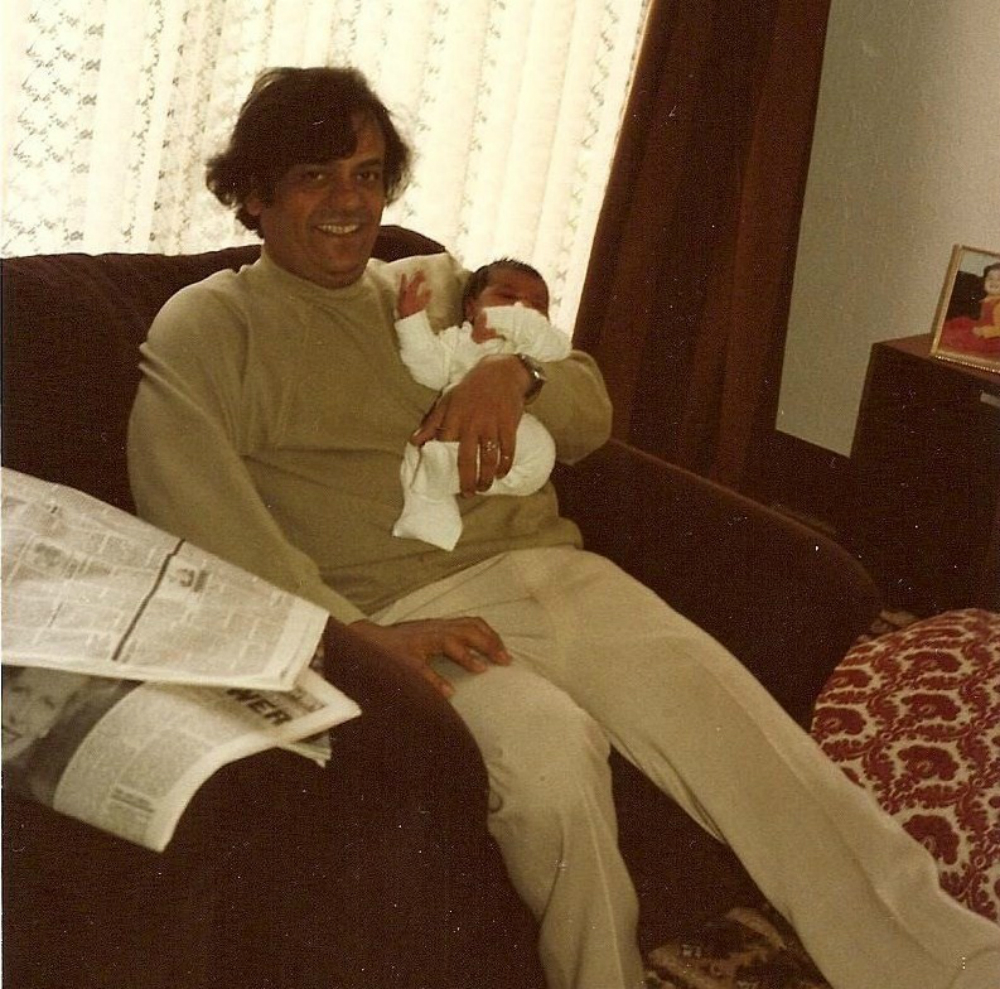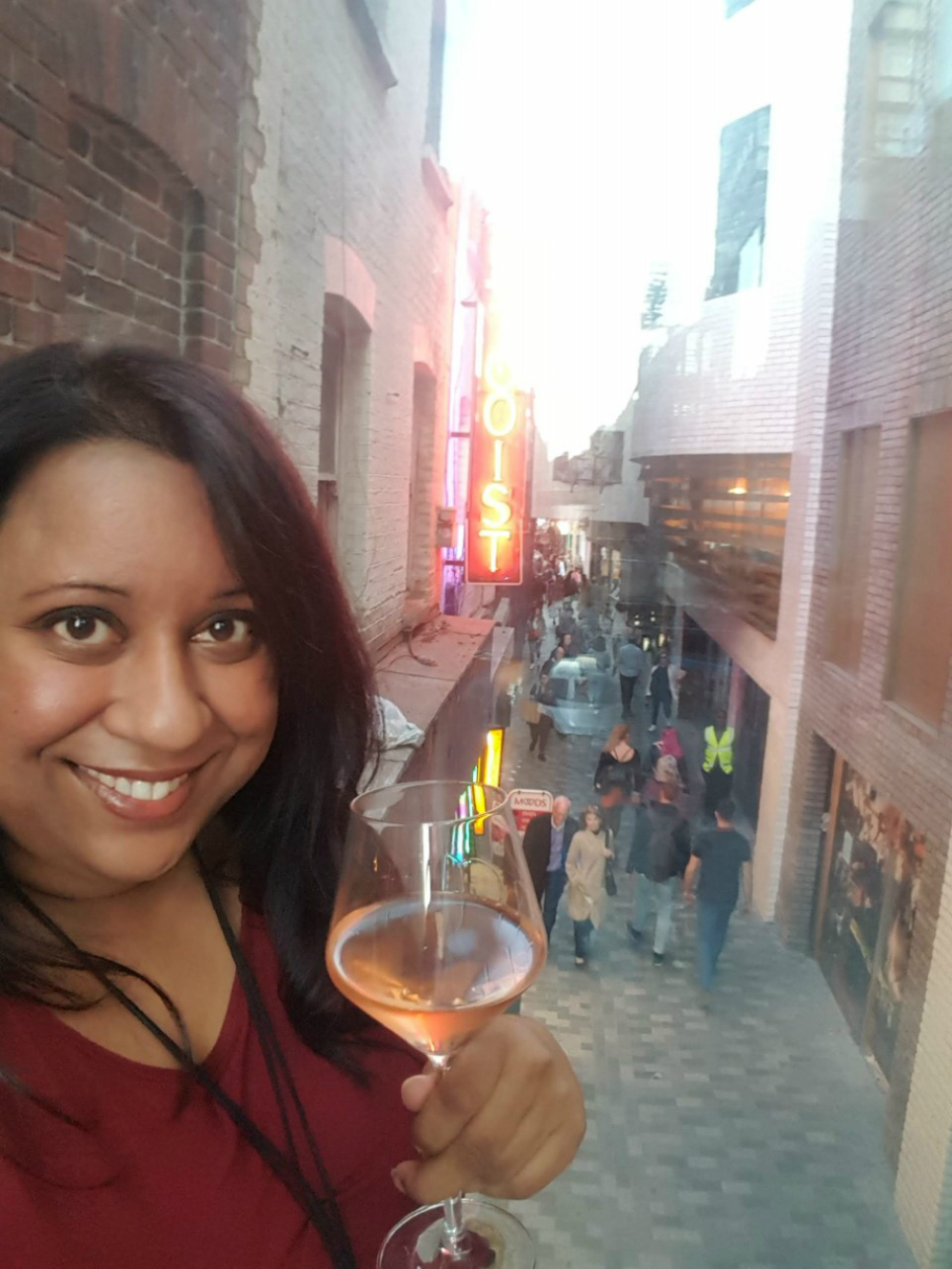"How a WhatsApp group of strangers is helping me grieve"

Celebrity news, beauty, fashion advice, and fascinating features, delivered straight to your inbox!
You are now subscribed
Your newsletter sign-up was successful
By the time Suchandrika Chakrabarti was 19 she had lost her mum and dad. For years she kept her true emotions locked inside until she came across an unlikely form of therapy - a global WhatsApp group of adult orphans
Updated since its original publication in 2020.
Becoming an orphan before anyone else you know can be an isolating experience. It’s hard to feel understood by people who haven’t had the experience; all too often, they’re frightened by the depth of the loss, and struggle to know what exactly to say.
I know this because both of my parents died in the early 2000s, before my 20th birthday. My mother died in 2000 from the side effects of schizophrenia medication, my father from cancer in 2003. Their deaths were traumatic, but so was the aftermath; very few people in my life felt comfortable hearing about my pain. That's why on 11th December 2019, I turned to a group of strangers in the same situation, in a WhatsApp group chat for young orphans. For the first time in my life, I have access to people – 60 in fact – who have shared this life-defining experience.
The group was set up by London-based charity worker, Katharine Horgan. She started the WhatsApp chat after seeing a tweet from a podcast about grief, asking for resources for young orphans who aren't children. Horgan then posted a screenshot of the group to her Twitter account, inviting people to DM her for access. I remember seeing the tweet and thinking I’d like to join – I’d never been to a gathering of adult orphans. There was another reason too, that was sitting at the back of my mind: it was the 20th anniversary of my mother’s death. Knowing that there were people who I could turn to and who would understand what the milestone meant was incredibly helpful, because it’s not an experience many of my friends can relate to.

There were about ten people in the group chat when I joined. I remember introducing myself with: "My mum died when I was 16, my dad when I was 19, and I'm 36 now. I think the internet has done wonders in helping us orphans find each other. That's so important. Thanks Katharine Horgan for setting this up - I'm really happy to be in this group [heart emoji]." Seeing other people introduce themselves with similar life stories to mine felt strangely liberating. Others said hello in response and the introductions continued, each little story so echoing mine, convincing me I was in the right place.
Membership of the group spans the globe, so I often wake up to messages from Americans, then I might share an observation on the weather with the British and European members as we get ready for work. The chat tends to get busier in the evening, when people have time to let their thoughts wander. All kinds of topics come up in the chat: finding reasons to keep our old school photos, which we've inherited from our parents; the effects that grief can have on the sex drive; how secondary losses can make a grief that has been processed reverberate through an otherwise happy life.
Celebrity news, beauty, fashion advice, and fascinating features, delivered straight to your inbox!
Together, we’ll share awkward moments or difficult reactions we've received when we've had to reveal our orphan status at work, or to a stranger. We’re all at different stages of our grief too. For instance, a few nights ago, someone asked, "Does it ever get better?" and my heart broke for her because I’d asked myself that question too. I immediately tapped out a message reassuring her that it definitely does get better. Another time, a younger member of the chat asked how she would get through graduation without her parents, so those of us who have experienced that shared stories and pictures from our graduations. Photos that had siblings, partners or friends by standing by our side.

Is our WhatsApp chat a truly helpful form of group therapy for the grieving? Andy Langford, Chief Operating Officer at Cruse Bereavement Care, and a counsellor himself, thinks so. "There can be a perception that online support platforms are somehow not ‘real’, but they very much are. Clinical outcomes for peer support can fare as well, if not better in some instances, than support from a ‘professional’. There is no right or wrong way to grieve.
"It is also important to know how to escalate to someone or a service with expertise if needed, if someone indicates that there is a problem that the group cannot handle, for example, a risk in relation to suicide or self-harm. Finally, as with any online activity, a level of caution should be given as any information shared is public."

The most common emoji used in the chats are hearts, followed by broken hearts; a reflection of all the love and grief described in the group. Sometimes, that is the only reply to an incredibly bleak story or set of facts; no words, but an acknowledgement that the pain is real and the telling is necessary. A simple emoji from someone who understands your parentless state is much easier to take - and more meaningful - than the frightened expression of a friend who wants to help, but has never known loss.
Suddenly, I have access to 60 people who know the specific loneliness of losing our parents too soon, and I think I’ll need them now, as I wonder how to mark the twenty years since my mother’s death. The group has become a safe space for me, where not only have I looked for reassurance ahead of this anniversary, but I've also shared some of my experience. That helps me feel that all of the grief and pain wasn't for nothing - if I can find meaning in it and use that to comfort others, then maybe the time I spent grieving wasn't entirely wasted.
You're not alone
*Griefcast is podcast examining grief and death - but it's cheerier than it sounds. Each week Cariad Lloyd talks to a different guest and together they share their views on the pain, loss and the weirdness that happens. Guests have included Aisling Bea, Susan Wokoma and David Baddiel. Tweet them @thegriefcast , follow on instagram @thegriefcast or email thegriefcast@gmail.com
*Cruse Bereavement Care has a free helpline 0808 808 1677 and many local branches offering help and support.